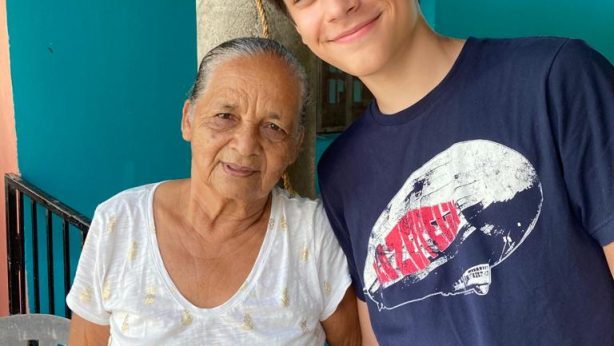Misconceptions About Poverty
Poverty: This is a word that each person defines differently. We are often found guilty of associating the word with a certain image of poverty, particularly reflected by what we see on TV. The images of the starving children in Africa, or the commentary on the “lazy” homeless American do not accurately represent the world’s poor. By limiting the term to just what we’ve seen in the media, we develop a misguided view of what poverty really is, and make uninformed judgments regarding the poor.
Misconception #1: You can’t have those things if you’re poor.
Poverty comes in several forms and doesn’t necessarily mean complete and utter destitution. Instead, it means that an individual lacks the money to achieve a certain standard of living. How a person chooses to use the money that she makes is up to her. Those choices don’t define whether or not she is poor. Owning a television does not mean that a women isn’t poor, nor does it mean that she is incapable of managing her money. The TV may have come into her possession for a variety of reasons, and can be considered a fairly inexpensive investment to provide her family with entertainment at home. I’ve met many clients in rural areas that own a TV, and almost all own a cell phone. Even with these possessions, it is clear that these women and their families continue living below the poverty line. The overall living conditions of Honduras’ poor continue to be severely inadequate and most struggle between continuing their children’s education or sending them to work.
Misconception #2: Unintelligence and incompetence explains it all.
The poor are often viewed as unintelligent and incompetent primarily because of their lack of formal education and forms of employment. The assumption that the poor are unable to make sound financial decisions stems from this perception. This attitude is incorrect and harmful. Intergenerational poverty reduces the opportunities that the poor have access to, including education and adequate employment. Contrary to this negative misconception, I have found that intelligence and competence are at the heart of Adelante clients’ success stories. I’ve heard countless stories from women about how they started with nothing, but now have larger, profitable businesses. Many of these women didn’t even have the chance to finish primary school, but have a lot more business knowledge than I do- a college graduate. When we look at the poor as being unintelligent and incapable, we come to believe that we know what’s best for them.
Misconception #3: If you’re not skin and bones, you’re not poor.
When thinking about poverty, we often confuse the word malnutrition with starvation. Starvation afflicts many people around the world as a result of food deprivation – meaning the starving person does not have access to enough food to get by. On the other hand, without enough money, a woman and her family are likely to be malnourished, meaning that while they are consuming food each day, their diet lacks certain vital nutrients. While they are not starving, the food that is being consumed is not providing them with adequate nutrients to keep them healthy and productive. We often find it difficult to reconcile the high rates of obesity among the poor. Unhealthy food is cheap, filling, and easily accessible all over the world, including Honduras. Why do Hondurans often consume high-carbohydrate meals including tortillas, plantains, rice, and beans? These foods are easily accessible and provide a more filling and cheaper alternative to vegetable-based dishes. This explains the high rates of obesity among the poor not only in Honduras, but around the world.
When working with the poor, it is necessary to have a comprehensive idea of poverty. By limiting your definition, you not only ignore a significant number of individuals living in poverty, but you’re also more likely to criticize the choices these individuals make on a daily basis. This disapproval prevents us from gaining a deeper perspective on the challenges of poverty and focusing on effective poverty alleviation strategies.


